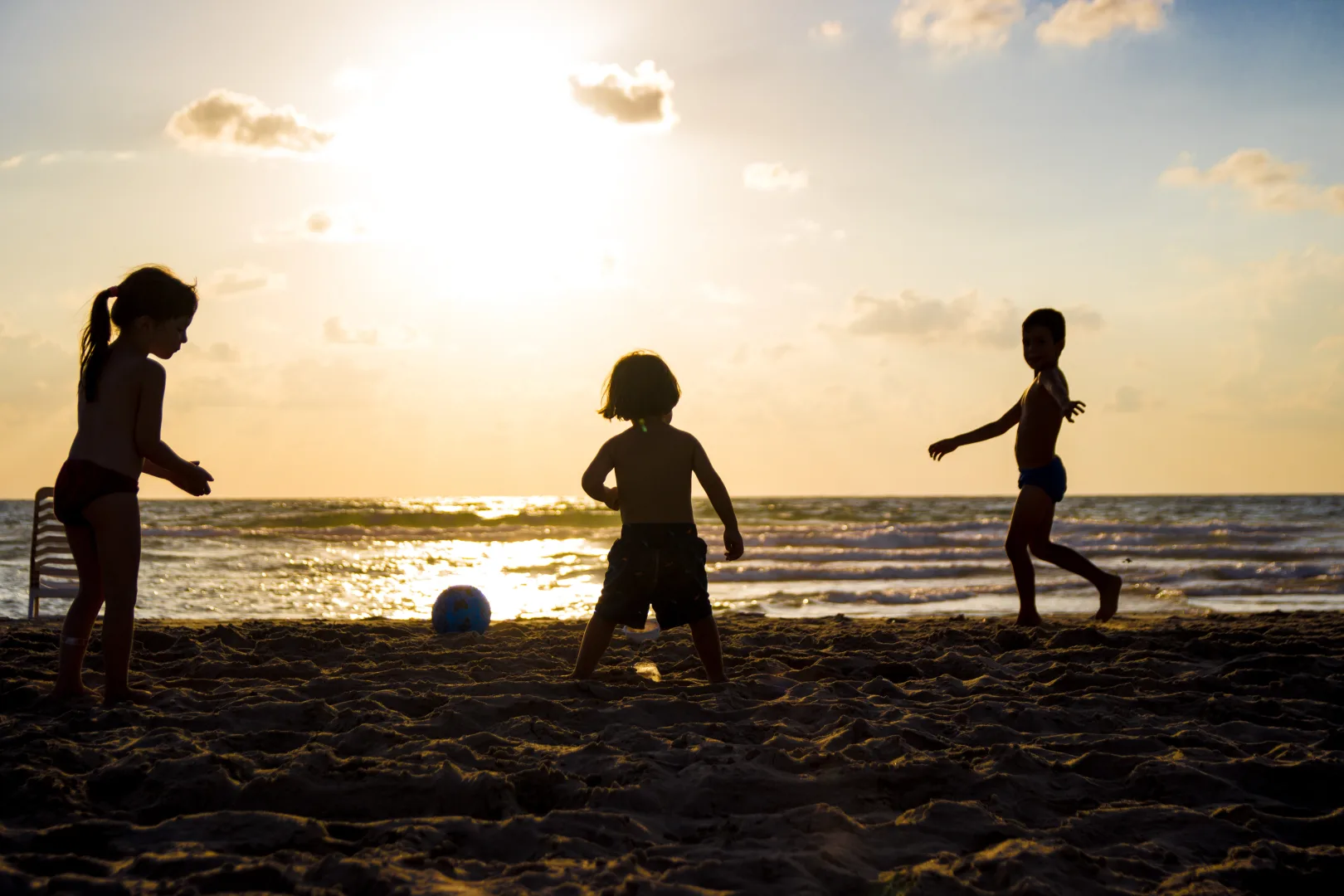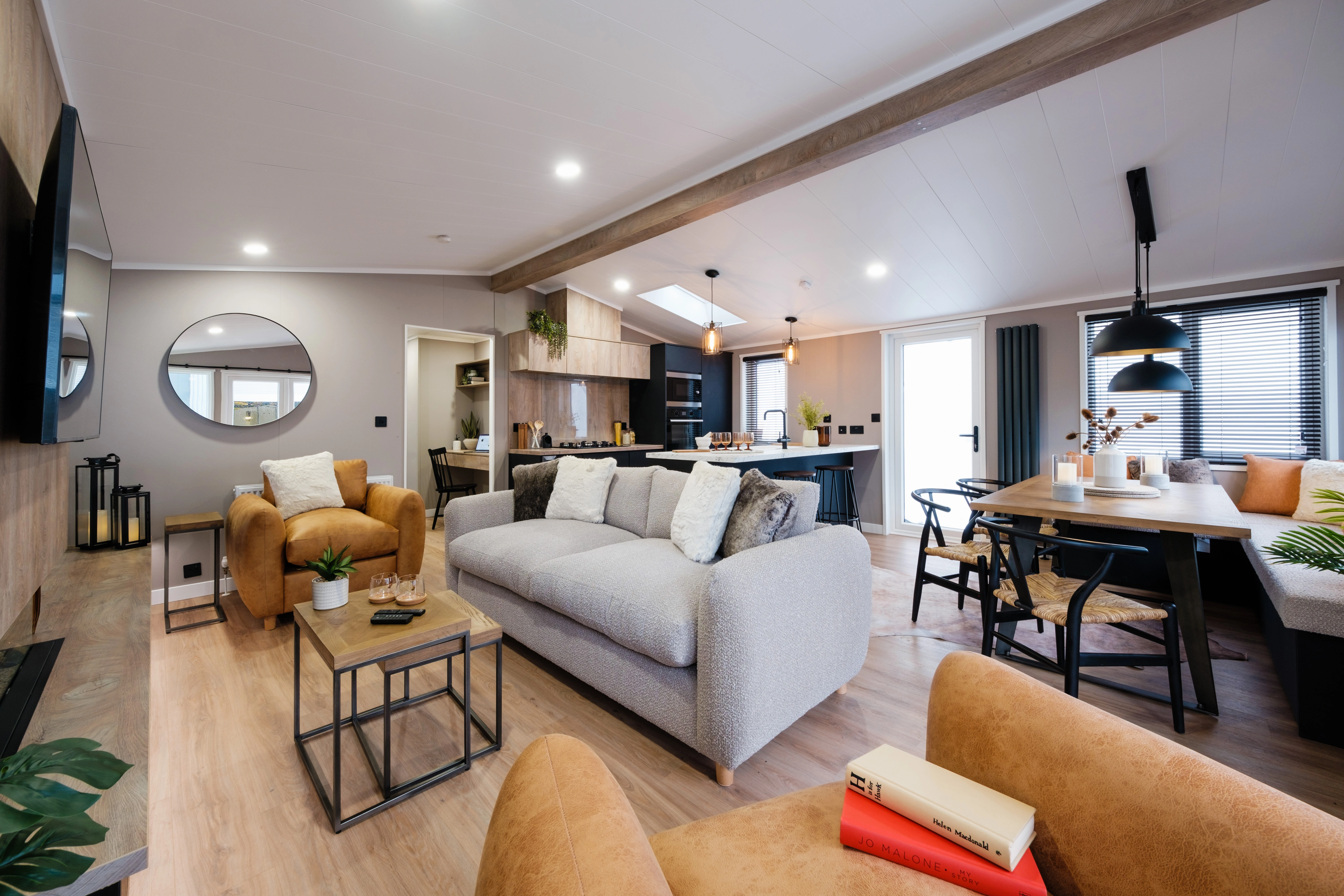A Complete Guide to Renting Out Your Static Caravan
Renting out your static caravan can be a great way to generate extra income, especially if you're not using it all year round. Whether you own a coastal retreat, a countryside escape, or a lodge in the woods, the demand for UK staycations remains strong. Many people are looking for affordable, comfortable holiday accommodations without the hassle of travelling abroad. However, before diving into the world of caravan rentals, it's essential to understand the process, legalities, and best practices. This guide will walk you through everything you need to know about renting out your static caravan.
1. Understanding the Benefits of Renting Out Your Static Caravan
Before we delve into the practicalities, let's explore why renting out your static caravan is worth considering.
Generate Additional Income: One of the primary reasons owners rent out their static caravans is to generate extra income. Whether it's to offset the costs of ownership, such as site fees and maintenance, or simply to make a profit, renting can be a financially rewarding venture. Depending on your caravan's location, size, and amenities, you could earn several hundred pounds per week during peak season.
Maximise Usage: Static caravans are often left unused for significant portions of the year. Renting it out ensures that your caravan is enjoyed by others rather than sitting empty. This can also help keep your caravan in good condition, as regular use typically encourages more consistent maintenance.
Tax Benefits: Renting out your caravan may offer some tax advantages. If you rent it out for more than 140 days a year, it may qualify as a Furnished Holiday Let (FHL), which comes with tax benefits, including the ability to claim capital allowances on furniture and fittings. However, it's crucial to consult with a tax advisor to understand how this applies to your specific situation.
2. Preparing Your Static Caravan for Renters
To attract renters and ensure a positive experience, your static caravan needs to be in top condition. Here’s how to prepare:
Cleanliness: The first impression matters. Ensure your caravan is thoroughly cleaned before every guest arrives. This includes dusting, vacuuming, cleaning the kitchen and bathroom, and ensuring the windows and floors are spotless. Don't forget about the exterior—clean the decking, steps, and any outdoor furniture.
Maintenance: Regular maintenance is key to preventing issues that could disrupt a guest’s stay. Check for any necessary repairs, such as leaky taps, faulty lights, or broken appliances. Ensure the heating and hot water systems are functioning correctly, and that all safety devices, like smoke alarms and carbon monoxide detectors, are in working order.
Furnishings and Decor: The interior of your caravan should be comfortable and welcoming. Consider updating old or worn furniture, adding soft furnishings like cushions and throws, and giving the space a fresh coat of paint if needed. A modern, well-decorated caravan will attract more renters and potentially allow you to charge a higher rental rate.
Amenities: Provide basic amenities such as kitchen utensils, crockery, bed linen, and towels. Additionally, consider adding extras like Wi-Fi, a TV with streaming services, a BBQ, or outdoor seating to make your caravan more appealing. The more comfortable and well-equipped your caravan is, the more likely guests are to book it.
Welcome Pack: A small welcome pack can go a long way in creating a positive experience. Consider including essentials like tea, coffee, milk, and biscuits, along with a welcome note and information about the caravan and local area. This thoughtful touch can enhance the guest experience and encourage positive reviews.
3. Understanding the Legal and Insurance Requirements
Renting out your static caravan involves several legal and insurance considerations. Here's what you need to know:
Permission from the Park: Before renting out your caravan, you must check with the holiday park management. Some parks have specific rules or restrictions on subletting. Ensure you have written permission from the park, and understand any fees or commissions they might charge for facilitating rentals.
Insurance: Standard caravan insurance typically covers personal use, but you’ll need to inform your insurer if you plan to rent it out. You may require additional coverage, such as public liability insurance, to protect you if a guest is injured while staying in your caravan. Ensure your policy covers accidental damage caused by guests and consider loss of income cover in case your caravan becomes uninhabitable.
Gas and Electrical Safety: As a landlord, you’re legally required to ensure that all gas and electrical equipment is safe. This means arranging an annual gas safety check by a registered Gas Safe engineer and keeping records of these inspections. Electrical appliances and installations should also be checked regularly by a qualified electrician. Providing a carbon monoxide detector is also a legal requirement.
Fire Safety: You must ensure your caravan meets fire safety regulations. This includes having smoke alarms and a fire extinguisher in place, along with clear instructions for what to do in case of a fire. It’s a good idea to provide guests with information on escape routes and emergency contact numbers.
Data Protection and GDPR: If you're collecting personal data from guests (such as names, addresses, and payment details), you must comply with the UK General Data Protection Regulation (GDPR). This means securing the data, using it only for its intended purpose, and not retaining it longer than necessary. It’s important to familiarise yourself with GDPR requirements or consult a legal advisor if you're unsure.
4. Setting Your Rental Rates and Managing Bookings
Pricing your caravan competitively and managing bookings efficiently are crucial to your success.
Research the Market: Start by researching the rental market in your area. Look at similar caravans in your park or nearby parks to see what they charge during different seasons. Consider the location, size, and amenities of your caravan compared to others, and set your prices accordingly. Keep in mind that you can charge more during peak holiday periods like summer, bank holidays, and school breaks.
Flexible Pricing: Consider implementing flexible pricing, where rates vary depending on the season or demand. You might offer discounts for longer stays or off-peak periods to attract more bookings. Special offers, like last-minute deals, can also help fill vacant dates.
Security Deposit: To protect against potential damages, consider charging a security deposit, which is refundable if no damage occurs. Make sure the amount is reasonable, and clearly state the terms and conditions for withholding part or all of the deposit.
Booking Platforms: There are several ways to manage bookings. You can list your caravan on rental platforms like Airbnb, Booking.com, or specialised holiday caravan sites. These platforms make it easier to reach a wider audience, manage bookings, and process payments securely. However, they charge a commission, so factor this into your pricing.
Direct Bookings: Alternatively, you can take direct bookings through your own website or social media pages. This allows you to avoid platform fees and have more control over the booking process. However, you’ll need to invest in marketing and possibly a booking management system to keep everything organised.
Guest Communication: Good communication is key to ensuring a smooth rental experience. Respond promptly to inquiries, provide clear instructions for arrival and departure, and be available to address any issues during the stay. Positive interactions can lead to repeat bookings and good reviews.
5. Marketing Your Static Caravan
To maximise bookings, effective marketing is essential. Here’s how to showcase your caravan:
Professional Photos: High-quality photos are crucial for attracting guests. Consider hiring a professional photographer to capture your caravan in the best light. Include images of the exterior, interior, and any standout features like a view, decking, or nearby attractions.
Compelling Listing: Write a detailed and engaging description of your caravan. Highlight its best features, the amenities provided, and what makes it special. Be sure to mention any nearby attractions, such as beaches, hiking trails, or local pubs, which can make your caravan more appealing to potential renters.
Guest Reviews: Encourage guests to leave reviews after their stay. Positive reviews can significantly influence potential renters and increase your booking rates. If you receive constructive criticism, use it to improve your offering and demonstrate that you take guest feedback seriously.
Social Media: Promote your caravan on social media platforms like Facebook, Instagram, and Twitter. Share photos, guest testimonials, and special offers to engage with potential renters. You can also join caravan rental groups or community pages to reach a targeted audience.
Word of Mouth: Don’t underestimate the power of word of mouth. Encourage satisfied guests to recommend your caravan to friends and family. Offering a small discount or incentive for referrals can help generate more bookings.
Seasonal Promotions: Create seasonal promotions or themed packages to attract bookings during quieter periods. For example, a "Romantic Winter Getaway" package with a complimentary bottle of wine and cosy décor could entice couples looking for a retreat.
6. Managing the Guest Experience
A positive guest experience is key to ensuring repeat bookings and good reviews. Here’s how to manage it:
Clear Check-In and Check-Out Process: Make the check-in and check-out process as smooth as possible. Provide clear instructions on how to access the caravan, any rules to follow during their stay, and what needs to be done before they leave (like taking out the rubbish or stripping the beds).
House Manual: Create a house manual that includes everything guests need to know about the caravan and the park. This could include how to operate appliances, Wi-Fi details, emergency contacts, and recommendations for local attractions and restaurants.
Ongoing Support: While you want to give guests their privacy, being available to assist with any issues during their stay is important. Whether it’s a quick phone call or an email, prompt and helpful communication can make a big difference.
Encourage Feedback: After their stay, encourage guests to provide feedback. This not only helps you improve but also shows that you value their opinion. A simple follow-up message thanking them for their stay and asking for a review can go a long way.
Conclusion: Renting Out Your Static Caravan
Renting out your static caravan can be a rewarding experience, both financially and personally. By preparing your caravan, understanding the legalities, setting competitive rates, marketing effectively, and providing an excellent guest experience, you can turn your holiday home into a profitable venture.
Remember, success in the rental market requires effort and attention to detail. From maintaining your caravan to managing bookings and communicating with guests, every aspect plays a role in creating a positive experience. With the right approach, you can enjoy the benefits of rental income while sharing the joy of your caravan with others.
You might also enjoy reading...

The best UK holiday parks for families
Do you struggle to keep the kids entertained in the holidays? From water parks to family-friendly holiday parks, theme parks to lively beach resorts, a staycation is great for all the family. Here are our top picks of parks that are best for children. They’re all near attractions that will keep the kids busy and you stress free in the school holidays.

5 reasons to buy a holiday home or lodge in 2024
Whether nestled in the countryside, by the seaside, or in a quiet woodland retreat, owning a static caravan or lodge can transform your lifestyle. Here are five compelling reasons to consider buying a static caravan or lodge this year.

The UK’s most Instagrammable holiday parks
Have you ever scrolled through Instagram and got #holidayenvy? We’ve got you covered. From sandy beaches to enchanting forests, vast lakes to picturesque meadows - here’s a roundup of the most Instagrammable holiday parks to make your grid stand out, while you enjoy staycation to remember.

Preparing your holiday home for winter
During winter your home may be left for long periods of time so it’s important that you protect it from the cold conditions & nesting vermin before you leave. Here are our top tips to prepare your home for winter to avoid costly insurance premiums.
